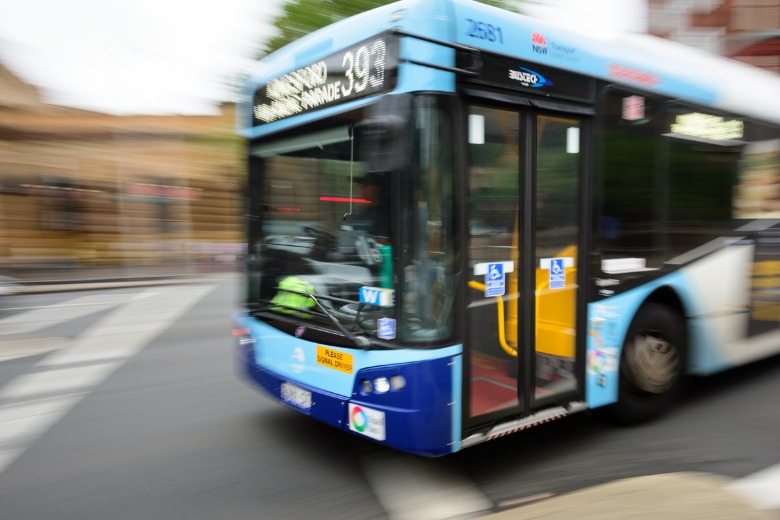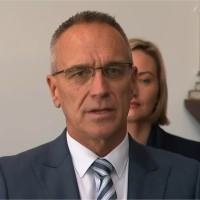
More responsibility for improving NSW bus services should be delegated to local councils, an industry taskforce says.

The government last week released the second report of the taskforce, which was established in May 2023 to determine how to deliver more efficient and reliable services.
Chairman John Lee says local government plays a critical role in how bus services are delivered, and this can be improved by looking at funding options and streamlining decisions that improve local roads.
He says the report highlights the role of local government in supporting a ‘positive passenger experience’, and the need for more engaged and strategic transport planning by councils.
“It proposes improvements to interactions with local government, with whom Transport shares responsibilities for various aspects of roads and bus related infrastructure,” Mr Lee said.
“As local government is responsible for 85 per cent of the NSW road network, it is essential that Transport partners with councils in improving bus services and active public transport.”
The recommendations are part of a wider plan to fix what the report says is a deterioration of services across NSW, which carry 40 per cent of all public transport passengers but only get two per cent of transport capital expenditure.
Improving infrastructure
The taskforce says more work needs to be done to plan and manage infrastructure like depots, bus stops and supporting technology, noting the quality of infrastructure provided by local government at bus stops is “inconsistent across the state”.
The report also says many state government processes for oversight of local roads and engaging with councils haven’t changed over the last thirty years.
“Advice to the Taskforce suggests that current processes are often resource-intensive, add limited value, and are inconsistent in ensuring that bus issues are adequately represented or considered,” it says.
The report recommends delegating lower level risk responsibilities to councils, saying this will help streamline and speed up decisions that can improve the local road environment for bus users.
There is an opportunity to improve consideration of operational bus issues through Local Transport Committees, while fostering the expectation of more engaged and strategic transport planning by councils.
John Lee
However it adds that delegating more powers to local government to manage streets will need to be balanced with oversight and monitoring.
“To ensure that bus operations are always considered, it would be appropriate for Transport to specify minimum standards and safeguards, and ensure monitoring systems are in place to identify and resolve any problems,” the report says.
Funding infrastructure and reforming LCTs
Councils should be able to use mechanisms such as Development Contributions and Voluntary Planning Agreements to fund local public transport infrastructure, the report says.
“These mechanisms enable councils to collect direct contributions for key community infrastructure such as bus shelters, lay-by bus stops and other facilities,” it says.
It also recommends amending the guidelines, and potentially the regulatory framework, for Development Contributions and Voluntary Planning Agreements so it’s easier for local government to use them for public transport infrastructure on local roads.
The report says the role of Local Transport Committees (LCTs), which include local government representation, should be upgraded from a de-facto oversight role to a capacity building and advisory function, signaling “that the NSW Government expects, and will actively support, better performance from local governments when managing roads.”
‘Shameful’ lack of investment
The 204-page report calls for modern, fit for purpose bus contracts in the regions, saying existing models are outdated.
It notes expected population growth hasn’t been factored into funding for new bus services, leaving growing communities disconnected from essential services.
Mr Lee said the lack of investment in bus services was “shameful”.
“Buses are the largest public transport mode in the state and it needs well thought through plans to be implemented to fix this neglect,” he says.
“We have recommended a strong, detailed and scalable plan for the Government to consider. That means more money for services, bus stops, road priority and smart people delivering the plan.”
The Taskforce will hand its final report and recommendations to the government by May 1, 2024.
Comment below to have your say on this story.
If you have a news story or tip-off, get in touch at editorial@governmentnews.com.au.
Sign up to the Government News newsletter
Not a hope of meaningful change! Yes It is a‘Shameful’ lack of investment’ but that a result of the way we do Land use planning.
As mostly state planning departments and ministers do not see that building Car centric suburbs is wrong! as the developers would have to cater for more infrastructure expenditure in their land releases, if that was mandated.
So you cant retro fit Bus routes into the newer more densely packed suburbs of the last decade .
This shows the disconnect between Planning and need transport infrastructure at a state level. It is not possible currently under our Developer centric Planning regimes. So, local Transport committees would be just as powerless in reduce car centric subdivisions in most cases as they will be over ruled by the urgent push for more housing stock.
The current planning driver being increasing Dwelling numbers: By infill and sprawl .
So, Land use Planning in particular, Say in NSW is the domain of powerful lobby groups. Of which none of these groups are interested in Public transport other than to exploit its presence, Profit driven development system and So, our Planning state bodies therefore have no interest ! Even if that is the agency’s title includes the meaningless term Infrastructure.